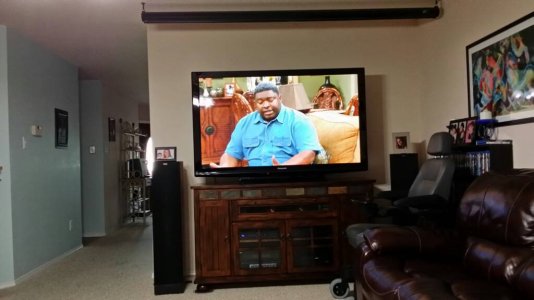Re: Does anyone else think the camera sucks?
While I am a photographer and agree with general philosophy of photography rules and learning your tools, I think for the average smartphone user, what photographers think is irrelevant to them, because they didn't buy a consumer device just so they have to "learn" photography--they just want to snap photos. The camera makers and phone makers know this very well, so they try to make their consumer products as *****-proof as possible, making them fully automatic in their default modes so that you can just snap shots and not have to think about any of the photography rules. I mean they even include composition guide/grids in some of the cameras--how much more *****-proof can you get? So looking at the issue from that point-of-view, the criticism of the sub-par low-light performance (regardless if it's due to camera or app) is valid, since the typical consumer does not want to hear that they have to learn photography skills and understand how photography actually works. They don't care about shutter speed, aperture, ISO, lighting, composition, white balance, lens distortion, etc. So the consumer market, companies have to distinguish themselves by creating the most seamless, effortless, and *****-proof automatic experience in order to win the competition. In this specific area of smartphone photography, whichever company can allow the consumer to just snap a shot and get great results, regardless of the lighting condition, or whether the user has shaky hands, or the subject is moving, will win.
With all that said, the photographer in me (and as a person who's always striving to better myself in everything I do), thinks that if there's anything of some level of importance to you, then you have these choices:
1) Blame the limitations of the product and fume and pout and still not get better results because you refuse to find solutions to your problem.
2) You jump ship and switch to a product that's even more *****-proof so you don't have to exert yourself in making any efforts to research, learn, and practice something that you care about at some level.
3) Learn to use your tool properly. Every tool has its strengths and weaknesses, and if you just devote a bit of effort to learn and practice, you will get far better results. Today's high-tech gadgets are already damn amazing in terms of how far we've come in just the last decade or so, and we are in fact, quite spoiled already. Everything we b-tch and moan about in this forum are first-world problems. The camera on the Note 3 would seem like something out of a science-fiction movie to photographers from the past decades. So seriously, if you wanted to, you can take awesome photos with the Note 3 if you spent the time learning the basics of photography. You can bypass Samsung's camera app and use a different one that doesn't over-process your low-light shots, and then use good digital darkroom techniques to process them yourself with a dedicated photography software like Lightroom or Photoshop (or cheaper equivalents--there are lots of them out there). Basically, if you don't want to switch phones and still want your photos to look awesome, then learn photography.



